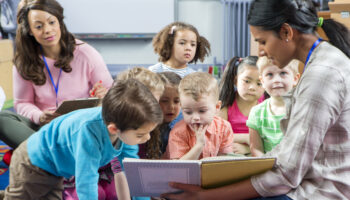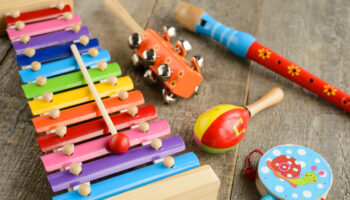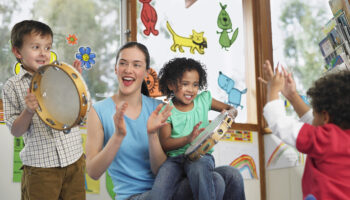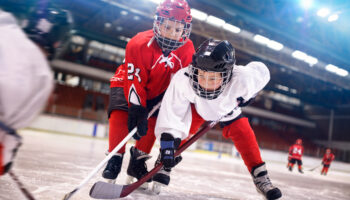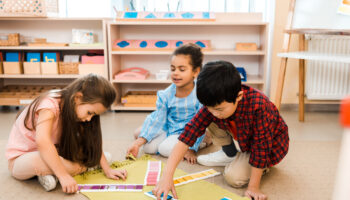By Aimee Currier
When I have a stressful day, I like to turn to music to help me decompress. Some days I need to play some soft, quiet music. Other days, the louder the better. I can even remember back to when I was a child and I would play the piano in a way that best suited my mood. It was very therapeutic.
Think about how you use music in your classroom. Do you use it for exercise? Naptime? Brain breaks? Music can serve so many purposes and can help kids manage their day in a way that makes sense to them. Providing options when it comes to music are beneficial to everyone.
Early childhood settings are a fantastic place to spark children’s interest in music. Think about the joy an infant shows when banging toys together. What a beautiful noise! Infants and toddlers love being sung to and once they become vocal, they like to join in. Preschoolers would sing and dance their way through the day if they could! We make sure they have instruments to play and music to listen to in order to foster that interest.
While our youngest children embrace music experiences, what about the school age children in your care? How are you promoting music experiences for them? If this is something you struggle with, think about how you manage music in your preschool rooms and make some minor modifications to keep the interest of the older children. Maybe you could add some more interesting instruments or a larger variety of multicultural instruments. After a long day at school, many children may need to seek out a drum or other type of percussion instrument. Some may prefer a listening center with headphones and some CDs. You may even discover that some children enjoy teacher- or student-led music activities. The possibilities are abundant.
Whatever you decide to do with school-age children and music, keep in mind that your setting may be the only place they are getting music experiences. Some public schools don’t offer music as a regular part of the curriculum, and some don’t offer enriching music opportunities until the children are in third or fourth grade. At that point they are getting ready to age out of your care. Providing music experiences in after-school settings helps to keep the interest in music alive.
You may be thinking, “It’s just music. What’s the big deal?” While humans are exposed to music all over (car radio, stores, etc.), being an active participant in music experiences is beneficial in many ways. As I mentioned previously, music is a way for us to escape from the stressors of our everyday lives. In addition, musicians have increased brain development and memory. It helps with language and literacy. For my own children, it has done all of the above and more. I have two children, both of whom are involved in different areas of music. I’ve enjoyed watching them in their chorus, band, and orchestra performances, but more so I’ve happily watched them develop socially. They are both very shy and it’s been through music (and here is where I will give a shout out to their music teachers) that they’ve formed some incredible relationships. Music gives ALL children the opportunity to express themselves and be who they are without judgment. I can’t think of anyone who doesn’t need that! It also opens the doors to potential careers in theater, music performance and teaching, just to name a few.
I encourage you to take a look at this video for more information about the ideas discussed here.
Vaughan Fleischfresser, music educator and advocate had this to say on Twitter: “When I watch children making music together, I see happy children, I see connected children, I see empowered children, I see thoughtful children, I see confident children, and I see empathetic children. Making music together is one of life’s pleasures and a must for education.”
